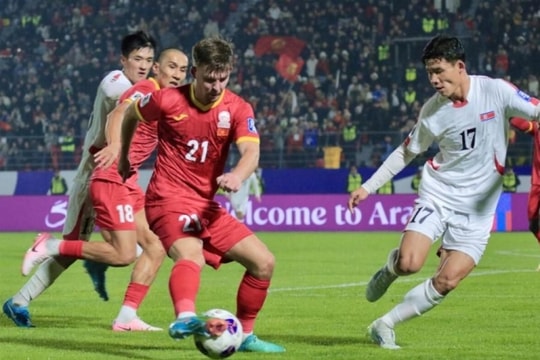North Korea releases American student: Negotiation technique or personal motive?
(Baonghean) - The US media has labeled North Korea as the country with one of the most terrifying punishments in the world: more than ten years of hard labor in one of the "notorious" local labor camps. When American citizens are caught up in the law in Pyongyang, "early release" is a distant dream. Therefore, the sudden release of American student Otto Warmbier a few days ago by North Korea is a very noteworthy move.
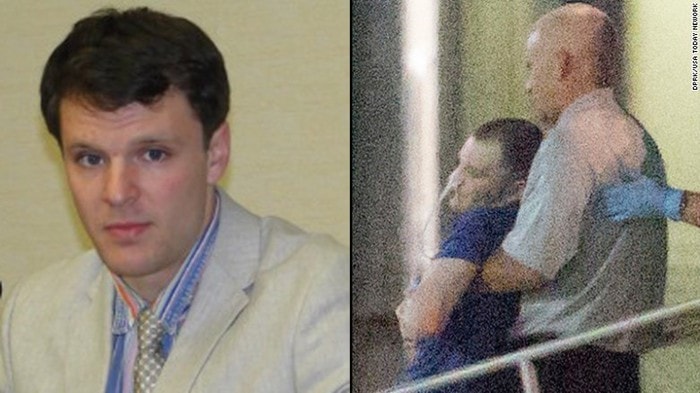 |
| Otto Warmbier - the American student recently released by North Korea, has been in a coma for a year. Photo: USA Today |
Difficult "precedent"
Negotiations with Pyongyang have always been challenging, and success has not always been a problem for negotiators. In many cases, in exchange for freedom for its citizens, Washington has had to resort to unconventional methods. On March 17, 2009, Euna Lee and Laura Ling, two American journalists, were arrested and charged with illegally entering North Korea to conduct a smear campaign, with each sentenced to 12 years of hard labor, with no chance of appeal. In August 2009, former US President Bill Clinton made a private trip to Pyongyang and met with then-North Korean leader Kim Jong-il to find a way to help free the journalists. North Korea said Mr. Clinton had “expressed his sincere apology,” and the former US leader had to spend three hours having dinner and taking photos with Kim Jong-il. A day later, Euna Lee and Laura Ling were acquitted and released.
In late 2012, US officials once again announced that Kenneth Bae, the owner of a travel company, had been arrested while on business in North Korea, accused of “hostile acts” against the country, establishing bases in China with the aim of “ousting” the North Korean government, encouraging North Korean citizens to overthrow the government, and conducting a “sinister smear campaign.”
North Korean state media also reported that Mr. Bae had plotted to overthrow the country through religious activities. A sentence of 15 years of hard labor seemed too much for Mr. Bae’s health at the time, but when former U.S. Ambassador to the United Nations Bill Richardson traveled to North Korea to negotiate on behalf of the businessman in January 2013, nothing was resolved. Four months later, former NBA star Dennis Rodman, who claims to have an undying friendship with leader Kim Jong-un, announced that he would try to secure Bae’s release, but that didn’t work, at least not immediately.
In January 2014, when asked by CNN about his trip to North Korea and Mr. Bae's case, sports star Rodman suddenly criticized him harshly, although he later apologized and claimed he was "drunk." It was not until 10 months later that Bae escaped prison after James Clapper, then Director of the US National Intelligence Agency, visited Pyongyang and delivered a letter from President Barack Obama to the authorities. When he returned safely, Bae ironically thanked Dennis Rodman for drawing public attention to his case.
And on January 2, 2016, Otto Warmbier, a student at the University of Virginia, was charged with committing a “hostile act” against the North Korean government. The Pyongyang government then released a video of Warmbier apologizing and admitting to “removing a political slogan from the reception area of the Yanggakdo International Hotel,” sentencing the student to 15 years of hard labor. However, it was recently reported that Warmbier had been in a coma for the past year.
On June 6, the diplomatic process was initiated when US State Department Special Envoy Joseph Yun met with Pak Kil-yon, the head of the North Korean delegation to the United Nations, in New York, and learned of Warmbier's deteriorating health. US Secretary of State Rex Tillerson then consulted with President Donald Trump and directed Yun to prepare for a trip to North Korea to bring Warmbier back to the United States. Yun and a medical team were sent to North Korea on June 12 to demand Warmbier's freedom on humanitarian grounds. On June 13, the 22-year-old student was released, but in poor health and was found by doctors at the University of Cincinnati Medical Center in the US at a press conference on June 15 to be unconscious, in a vegetative state, and with brain cell loss in all areas of the brain.
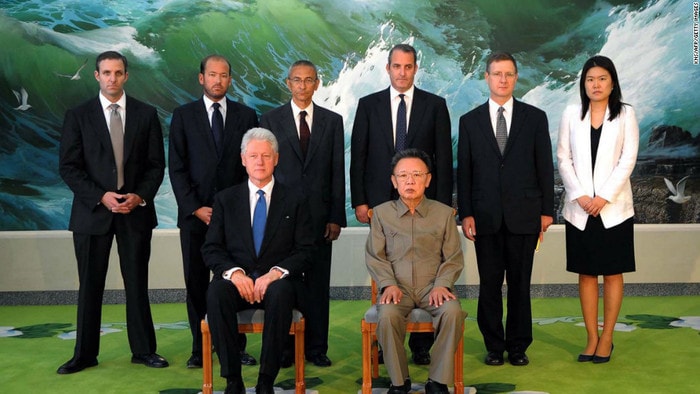 |
| Former US President Bill Clinton visited North Korea in August 2009 to meet with leader Kim Jong-il about releasing prisoners. Photo: Getty |
Pyongyang's calculations
The US State Department said they are continuing to investigate the authenticity of the information provided by North Korea, to see if Warmbier was poisoned and in a coma for a long time. From their perspective, Pyongyang feels there is nothing unreasonable in holding American prisoners and releasing them when the opportunity is ripe. In the case of Otto Warmbier, although the US State Department was really determined to "reclaim the person", in the end, that was not necessarily the decisive factor that made North Korea "change its mind".
Instead, analysts believe that Kim Jong-un has three other motives. First, if Warmbier dies, he will be in a weaker position in negotiations with the US government. Conversely, if Warmbier is still alive, Pyongyang can record him begging for release and use him as a “human shield” in case of an attack. But if Warmbier dies, in addition to reducing North Korea’s negotiating power, it could also provoke retaliation. Therefore, if it cannot afford to treat Warmbier, or if his condition is beyond repair, Pyongyang should release him rather than let him die in prison.
Second, the release of the prisoner may be seen by Pyongyang as a “humanitarian” gesture. Given what is known about Kim Jong-un, observers speculate that the leader may have insisted that Warmbier deserved 15 years of hard labor, but North Korea is showing goodwill. Without sinking ships, launching missiles, and detaining thousands in labor camps, Pyongyang has finally agreed to let the sickly student return to his parents, so what else can it expect? Without a sophisticated public diplomacy campaign in Western countries, North Korea does not have much of an audience to hope will “bend” to its side. But at least the country hopes that what it is doing will appease, or at least not further the drumbeat of American war.
Finally, President Donald Trump has shown that, for better or worse, he cares more about the lives of Americans than anyone else. He is even willing to send migrants and asylum seekers back to the brink of death to protect Americans from potential security threats. As Trump said of Syrian migrants during his presidential campaign late last year, “I warn those who are coming to the United States from Syria, who are part of this massive immigration, that if I win, they will have to go back.” And under Trump, the consequences of the death of a single American citizen could be far more profound than the deaths of thousands of South Koreans or Japanese. That is why North Korea must consider it.
Thu Giang
| RELATED NEWS |
|---|

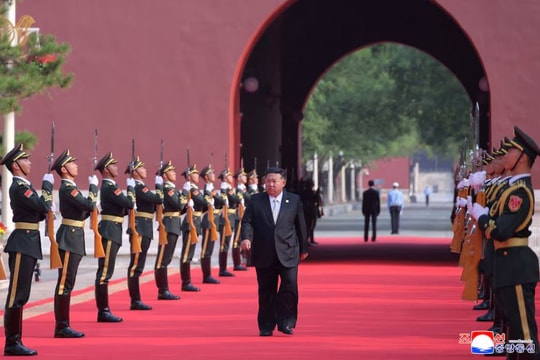
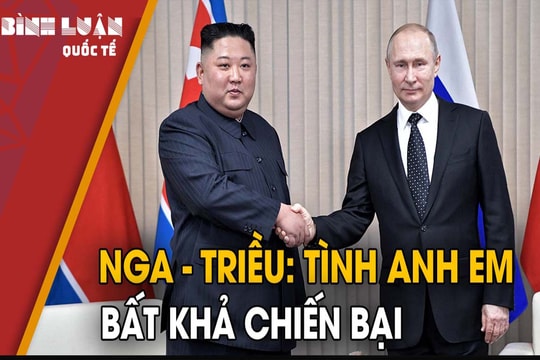
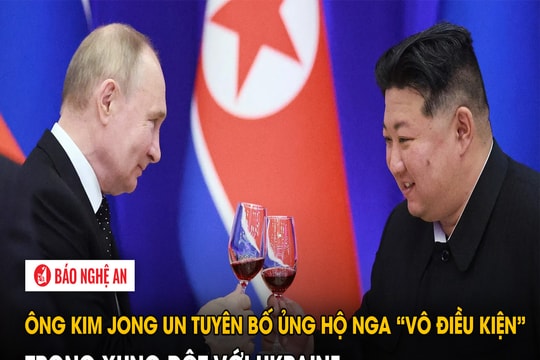
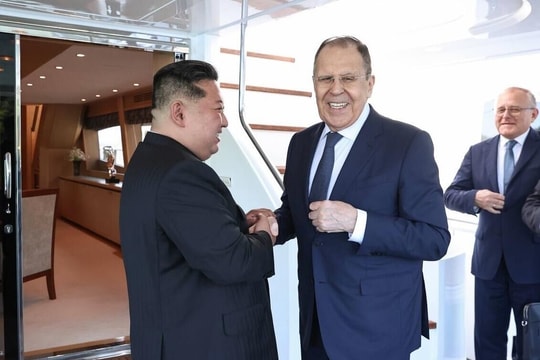
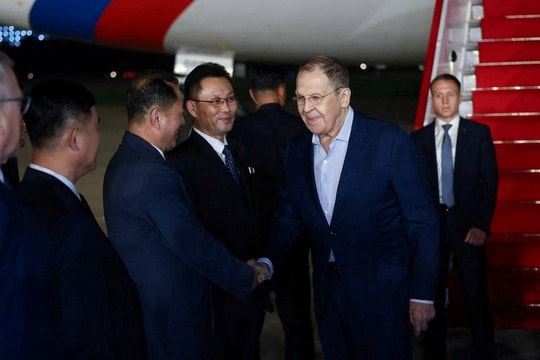
.jpg)
